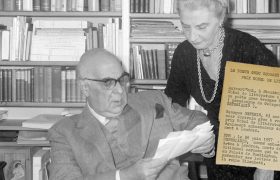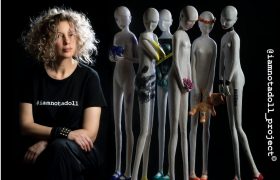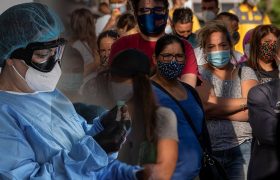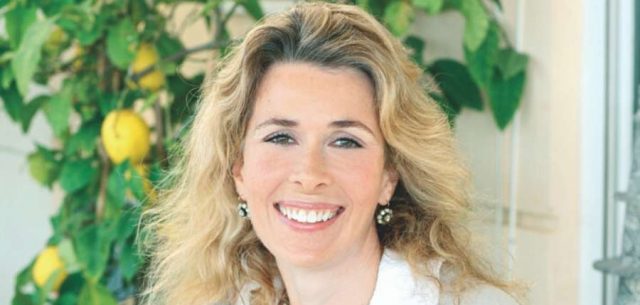Diplomacy in Confinement
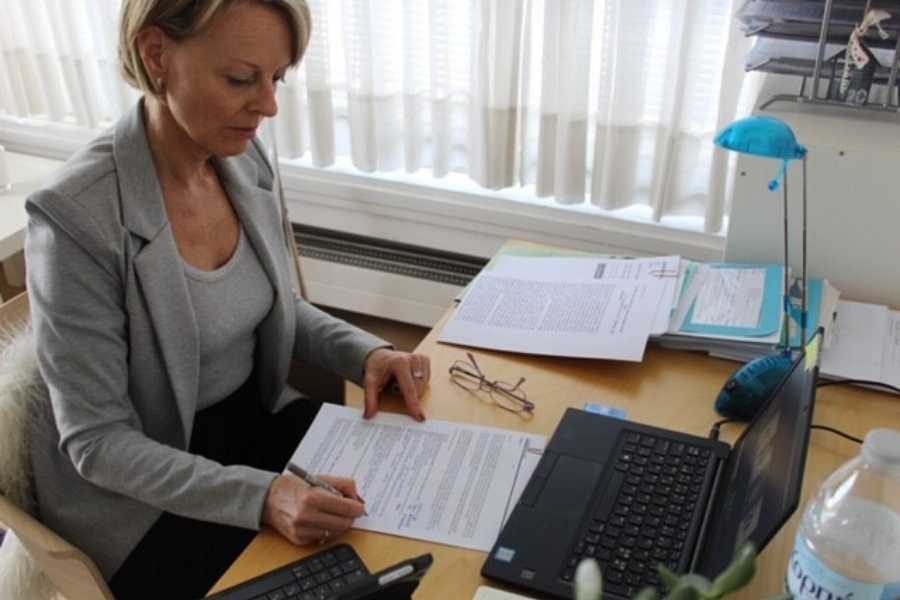
Swedish Ambassador Charlotte Sammelin on working from home with ‘King Gustaf’s portrait watching over her as she sneaks a cookie’ to ponderings on state surveillance and the fragile future of democracy.
As the Greek government decided to close schools, I reorganised the embassy’s work. The staff is divided into two teams alternating between office and working from home. When we need to communicate, we use the Swedish invention Skype.
The opening hours for the public have remained unchanged. But the entire work plan of the embassy has altered. No physical meetings, no promotion events, no incoming or outgoing visits.
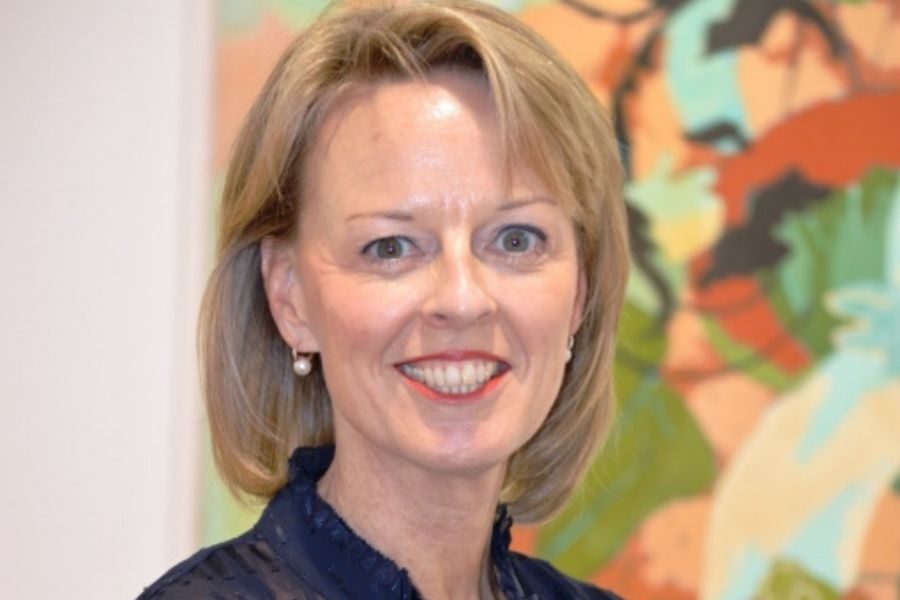
©Melissa Sammelin
What was important only three weeks ago is suddenly irrelevant. The pace by which tasks must be accomplished changed. Fewer mails and meetings. Moreover, no traffic jams.
We focus on contributing to the slowing down of spreading the Coronavirus, assisting Swedish citizens in Greece, ensuring easily accessible information at the embassy’s social media and home page as well as reporting about developments to Stockholm.Prior to the Covid-19 outbreak working from home was not a punishment. To occasionally work without office life interrupting increased my concentration and efficiency. Now working for three consecutive days from home is boring. Okay, less distraction from colleagues helps you focus but it reduces stimulating exchanges generating new ideas.
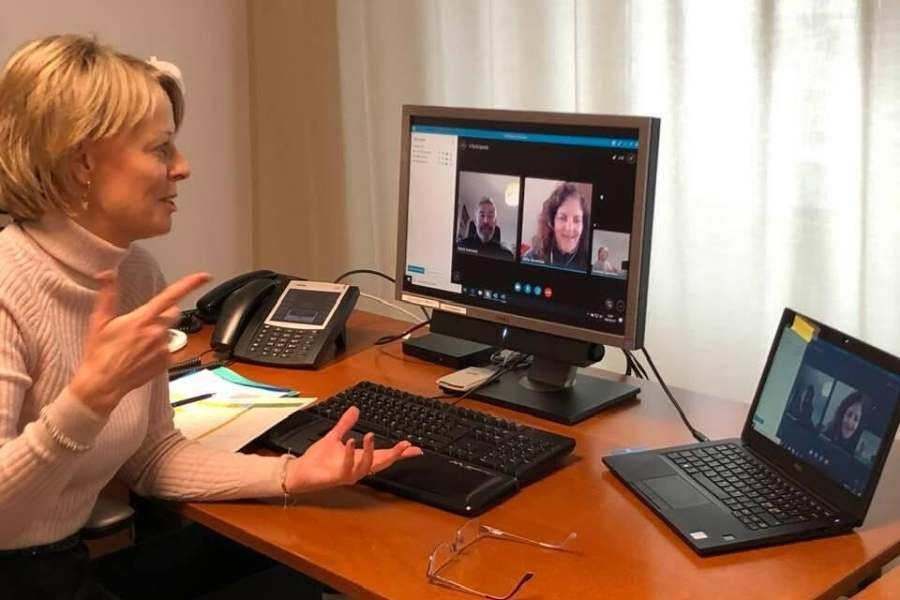
©Melissa Sammelin
The feeling of being on duty permanently rises. Already living in a state residence intensifies this sentiment. Outside the flags, inside everything set up for representation. And as I walk down to the kitchen to grab a biscuit the portrait of HM King Carl XVI Gustaf and HM Queen Silvia greets me.
There are advantages of confinement that I increasingly cherish. Less television. To my surprise I do not watch all those Netflix movies and series. Following the media and reading books fills my time. I am about to finishThe Man in the Red Coat by Julian Barnes about Samuel Pozzi, alias Docteur Dieu, describing the Belle Epoque. Less consumption. Shopping is limited to buying groceries and books online. More outdoor sports. More time for online Greek language lessons. Above all, more time with my daughter. Our common lunches offer us a well-deserved pause from remote studies and teleworking. We have peaceful moments to talk about life. We are in a privileged position here in beautiful Filothei and our health is fine. I also cherish positive developments because there are so few. Particularly that Cosmote chose to cooperate with Ericsson in the introduction of 5G in Greece, that the European Union agreed to launch accession negotiations with Albania and North Macedonia and that North Macedonia joins Nato. I particularly value that registered numbers of new Covid-19 cases stabilises in few countries.
Being at a long physical distance, including some closed borders, I worry for my beloved ones, like everybody else. How is my family in Sweden and my husband in Brussels? How is the medical situation there? What help could be provided for them in case of need? When will we see each other?Thoughts wander greatly and far when you are in confinement. Three billion people worldwide in confinement is mind-blowing.
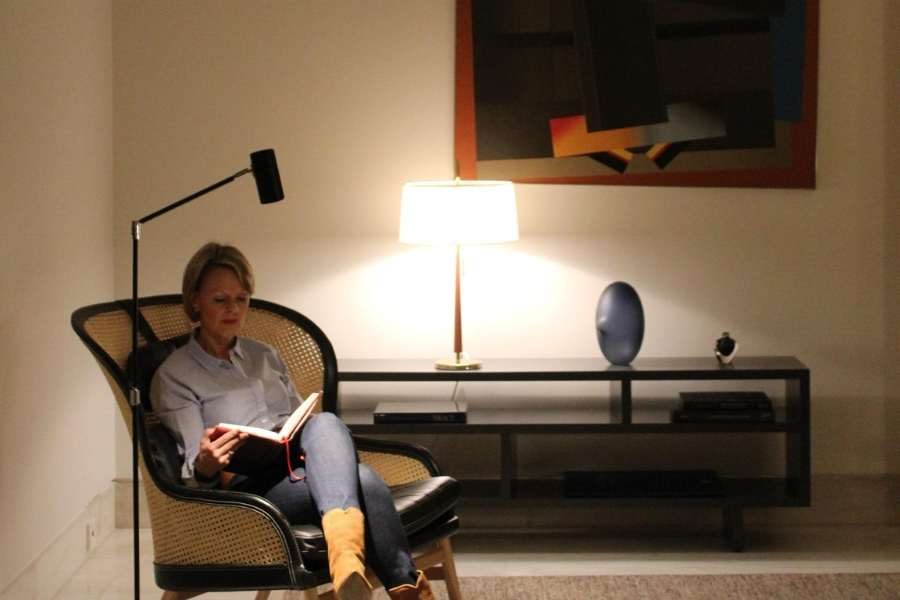
©Melissa Sammelin
And the epicentre moved from China to Europe and the USA. How comprehensive and how long-lasting will the consequences of Covid-19 be on our society and economy? Suddenly, the optimistic outlook for social and economic recovery after the financial crisis is shattered. No country excluded, everybody affected. According to ILO 25 million people risks becoming unemployed.
Many countries’ initial reactions were in-ward looking trying to shield off the outer world. Hampering movement, cutting global supply chains and the functioning of e.g. the European Union internal market. Does it help?
As a diplomat I am adamantly convinced that what we need is increased global cooperation to find multilateral solutions and reinforced solidarity, particularly within the European Union.Another aspect is increased government surveillance of citizens’ movements and health. What kind of precedent does this risk to create? Already democracy is in regression and more people live in authoritarian states. When this crisis is over, we will draw many important lessons. History will judge to what extent our actions were appropriate, proportional and reasonable. Drawing lessons from history nothing is eternal. I am confident that we will prevail.

